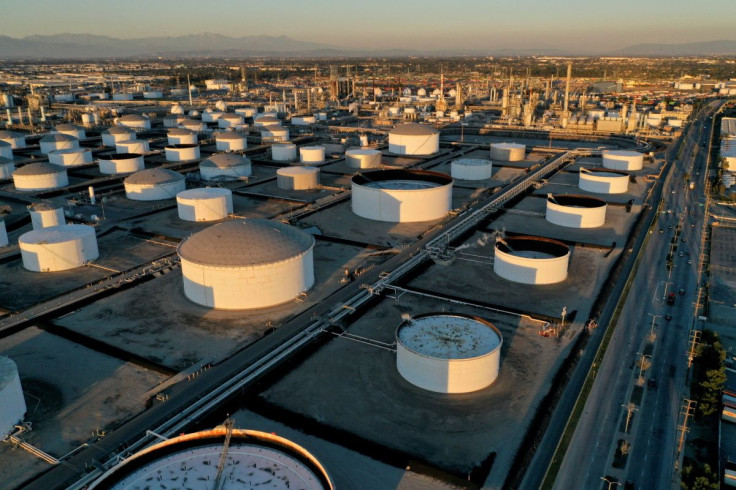Oil Settles Up On Distillate Strength, Supply Concerns

Oil prices reversed course to settle in positive territory on Monday on a rally in the diesel market and fears that supply might be crimped by a potential European Union ban on Russian crude.
Brent crude futures gained 44 cents, or 0.4%, to settle at $107.58 a barrel, while U.S. West Texas Intermediate (WTI) crude futures rose 48 cents to settle at $105.17 a barrel.
Diesel futures continued to rally after rolling over to the June contract on Monday, rising 5% to $4.0172 per gallon as a low supply of inventories globally put pressure on WTI and Brent prices.
"The main item was a further strengthening in the diesel market that acted to pull the rest of the complex higher," said Jim Ritterbusch, president of Ritterbusch and Associates in Galena, Illinois.
Both benchmarks fell by more than $2.00 earlier in the session on news that the European Commission may spare Hungary and Slovakia from a Russian oil embargo as it prepares to finalize its next batch of sanctions on Russia on Tuesday.
The EU is leaning toward banning Russian oil imports by the end of the year, according to two EU diplomats, after talks between the European Commission and EU member states over the weekend.
Hungary will not vote for any measures prepared by the European Union that could endanger the security of its oil or gas supply, Foreign Minister Peter Szijjarto said, reiterating the country's position on Monday to RTL television.
Around half of Russia's 4.7 million barrels per day (bpd) of crude exports go to the EU, supplying about a quarter of the bloc's oil imports in 2020.
On the demand side, U.S. factory activity grew at its slowest pace in nearly two years in April, according to a survey from the Institute for Supply Management (ISM) on Monday. The ISM's index of national factory activity fell to a reading of 55.4 last month, which is still considered to be a mark of expansion.
"U.S. economic data still indicated expansion in the manufacturing sector, far from a recessionary number," said Phil Flynn, market analyst at Price Futures Group in Chicago.
Markets in Japan, Britain, India and across Southeast Asia were closed for public holidays on Monday.
China released data on Saturday showing that factory activity in the world's second-largest economy contracted for a second straight month to its lowest level since February 2020 because of COVID-19 pandemic-related lockdowns.
"A slowing to that extent, when China is already suffering from a property bust and worries about its (until recently) increased regulation, is potentially a major issue for commodity markets and the world economy," Tobin Gorey, a Commonwealth Bank commodities analyst, said in a note.
© Copyright Thomson Reuters 2024. All rights reserved.





















